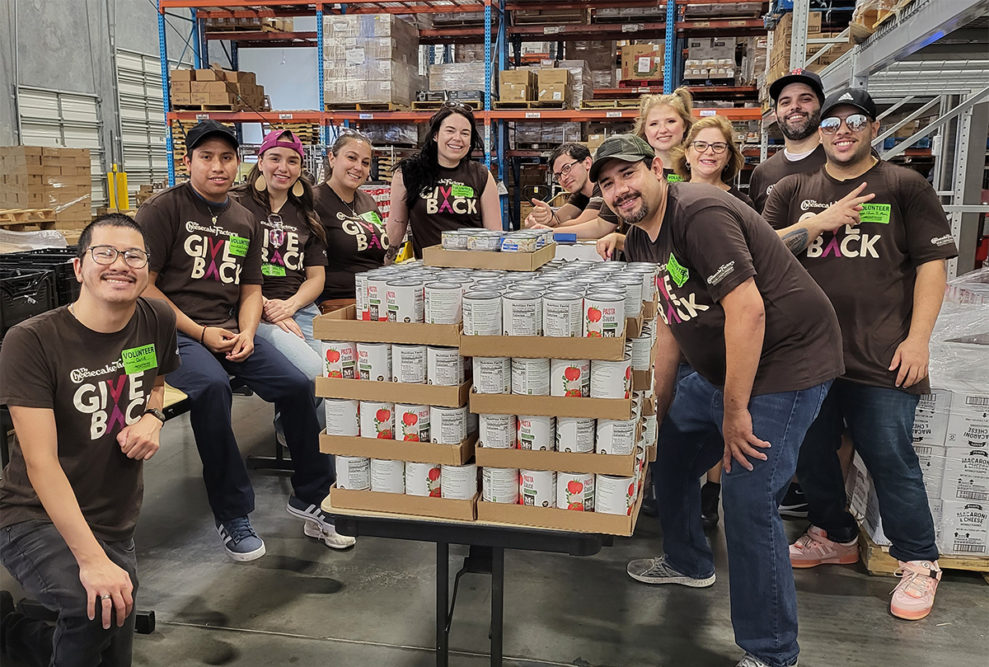Demonstrating community involvement plays an instrumental role in the success of your bakery business.
"Consumers are increasingly turning to online reviews not only to make in-person dining decisions, but also to discover new places to dine," said Monica Ho, CMO of SOCi. "A restaurant's online reputation, therefore, has a profound impact on its success and its local visibility - how prominently it features in local search results and the likelihood it gets discovered by potential customers. As such, effectively managing online reputation becomes a strategic imperative for enhancing local visibility and driving business growth."
SOCi Inc. recently released a comprehensive review and ranking of the leading sit-down restaurant chains in the U.S. based on their online reputation score. Each reputation score was carefully calculated based on five key parameters, evaluating overall restaurant location performance across top social and business listings platforms, Google, Yelp, and Facebook.
SOCi analyzed velocity, the rate of new reviews each month and whether it was increasing or decreasing; volume, the average number of reviews per location, tracking upward or downward trends; variety, the mix of positive and negative reviews; response, how quickly and how often a company responds to positive and negative reviews; and ratings: the average score a company receives on each platform across all locations. In total, SOCi analyzed over 100 signals measuring online performance and engagement, including reviews, questions, and rankings across online listings for thousands of sit-down restaurant locations.
The Cheesecake Factory achieved the top position with a reputation score of 75 out of 100 possible points, surpassing other renowned establishments.
Olive Garden comes in close second to The Cheesecake Factory with a score of 74, with Outback Steakhouse (64) and Applebee's (60) following.
The average score for the sit-down restaurants in the ranking is around 62, with room for improvement.
To focus on the top chains, the analysis applied rigorous selection criteria, considering only chains with hundreds or thousands of locations, leading annual sales figures, broad geographic or global presence, strong brand recognition, and a track record of success over time.
The ranking exhibits a tight competition amongst middle-tier restaurants, with Outback Steakhouse, Chili's Bar and Grill, TGI Friday's, and Applebee's all scoring in the early sixties. It's noteworthy that small differences in management of online reputation can make a significant difference in standing.
Sit-down restaurants, on average, have higher reputation scores compared to Quick-Service Restaurants (QSRs), with average scores around 65 and 45, respectively. This indicates that sit-down restaurants are generally more effective at managing their online reputations, perhaps due to a more focused emphasis on customer service and dining experience. This can also be a point of differentiation for sit-down restaurants in the competitive food service industry.
The gap between the highest and lowest-scoring sit-down restaurant chains (The Cheesecake Factory at 75 and Buffalo Wild Wings at 58) suggests a significant performance variation. This indicates the immense potential for lower-scoring chains to improve their online reputation and, subsequently, their overall business performance.
"After reviewing scores, ‘ghosting,’ or ignoring online feedback and reviews, poses a significant challenge to the restaurant industry,” added Ho. “It erodes consumer trust, depresses conversion rates, and weakens customer loyalty, which can greatly affect a restaurant's online reputation and overall brand value. The key to building and maintaining strong local visibility lies in being responsive to customers, acknowledging their feedback, and addressing their concerns in a timely manner. By fostering an environment of engagement and dialogue, restaurants can drastically improve their online reputation, ultimately driving customer satisfaction and business growth.”






